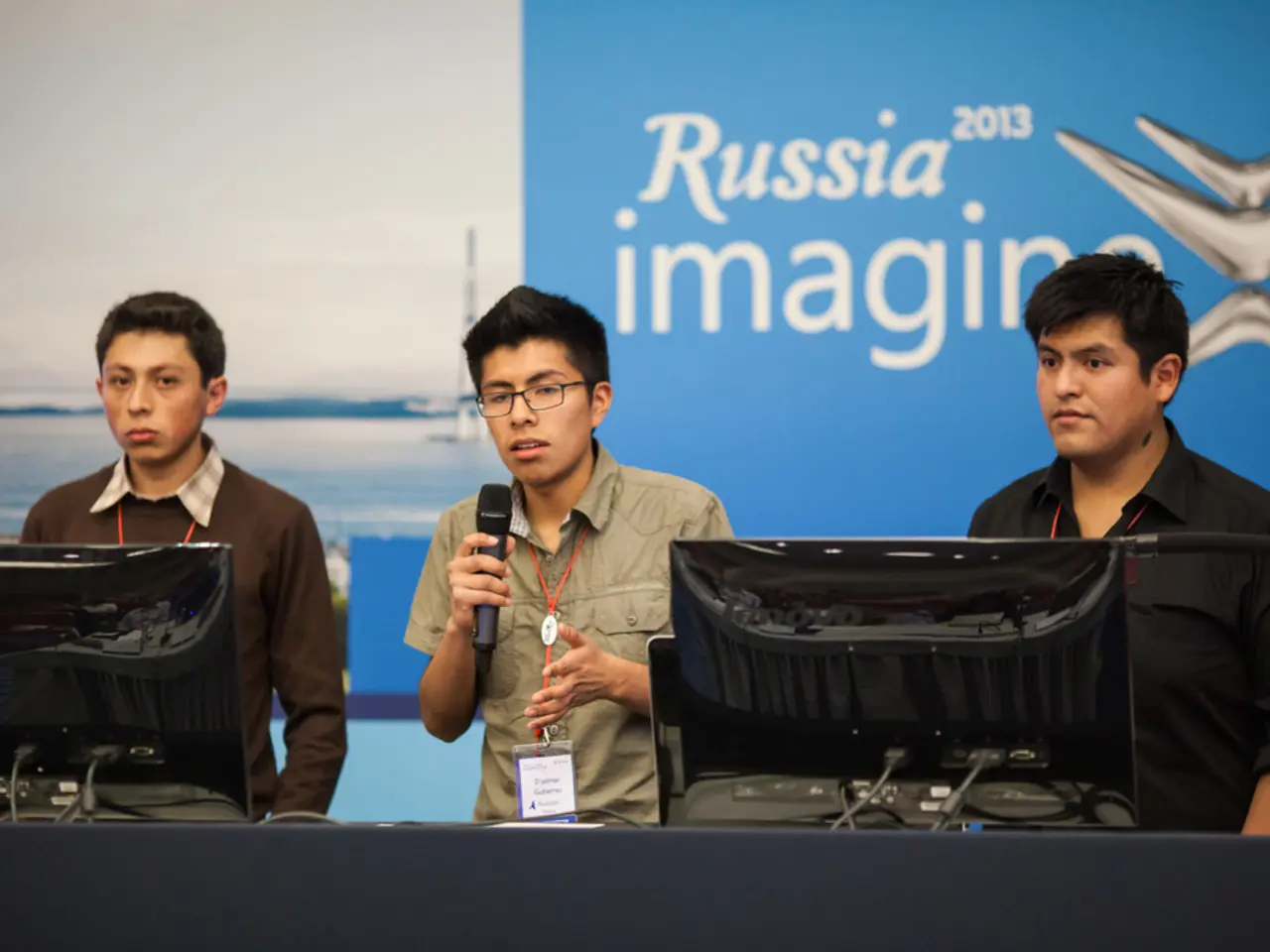Russia-occupied territories in Ukraine set for surrender prior to Trump-Putin discussions, according to media reports
In the ongoing conflict between Ukraine and Russia, the stance of European leaders and Ukraine on potential territorial concessions is largely cautious and resistant to unilateral Ukrainian land cessions. However, there are signs of some pragmatic shifts acknowledging the realities on the ground.
European Union foreign policy chief Kaja Kallas firmly rejects calls for Ukraine to cede territory unilaterally to Russia, warning that such concessions would play into a "trap" set by Putin to embolden further aggression. She emphasizes that Russia, as the aggressor, has not made any concessions and that rewarding Putin with Ukrainian land would be a dangerous mistake.
However, there are signals from some European leaders reflecting a more pragmatic adjustment. German Chancellor Friedrich Merz suggested that the current frontline might be considered as a starting point for territorial negotiations, somewhat reflecting a de facto recognition of some Russian-occupied territory. Similarly, the Dutch Prime Minister Mark Rutte hinted at the potential necessity of acknowledging the realities of Russian occupation in negotiations. These indications show a move from a wholly uncompromising stance to a more realistic approach but with an insistence on reciprocal land swaps and upholding the principle of Ukraine's territorial integrity in principle.
Ukrainian President Volodymyr Zelenskyy and European leaders have stressed that any territorial exchanges must be reciprocal, not one-sided concessions to Russia. They maintain the position that peace negotiations should not reward Russia’s initial aggression and that territorial swaps should be part of negotiated agreements rather than unilateral demands.
Meanwhile, Russia's official position remains uncompromising: Moscow demands full Ukrainian capitulation to its terms, including withdrawal from large eastern and southern regions (Luhansk, Donetsk, Zaporizhia, and Kherson oblasts), demilitarization, and political concessions such as denazification and alliance neutrality. Russia has made no genuine concessions and remains unwilling to negotiate seriously, according to assessments shortly before recent summits.
In summary:
| Party | Stance on Territorial Concessions | |----------------------|------------------------------------------------------------| | EU Leaders (Kaja Kallas) | Oppose unilateral Ukrainian concessions; caution against rewarding Russian aggression; warn of Putin's trap[1] | | Some European Leaders (Merz, Rutte) | Pragmatic shift suggesting frontline as negotiation basis; endorse reciprocal land swaps; uphold territorial integrity in principle[2] | | Ukraine (Zelenskyy) | Territorial concessions must be reciprocal; rejects forced cessions; insists on negotiated peace[2][5] | | Russia | Demands full Ukrainian withdrawal from key regions without concessions; no genuine sign of compromise[4] |
European officials believe Zelenskyy has leeway with voters to surrender land to Moscow to end the war. Ukraine has indicated it would only agree to a peace settlement that includes security guarantees in the form of weapons deliveries and a path to NATO membership. Trump criticizes Zelenskyy for requiring constitutional approval for territorial concessions. European governments have aligned with Kyiv's position on territorial arrangements to present Trump with unified diplomatic support for Ukraine's position.
Zelenskyy had previously proposed swapping territory controlled by Ukraine in Russia's Kursk region, but Moscow's forces ended that bargaining chip. Ukraine could agree to stop fighting and cede territory already held by Russia as part of a European-backed peace plan. Trump expects to know within the first two minutes of the meeting whether a deal can be made with Putin. The U.S. president plans to urge Russia to stop the war during the meeting. Russia currently occupies around 20% of Ukraine's territory as agreed under Kyiv's internationally recognized 1991 borders.
[1] - https://www.reuters.com/world/europe/eu-diplomats-say-putin-has-not-changed-war-objectives-2021-06-16/ [2] - https://www.reuters.com/world/europe/russia-ukraine-war-european-leaders-and-zelenskyy-strike-more-pragmatic-tone-2021-06-16/ [3] - https://www.reuters.com/world/europe/russian-occupied-ukraine-territory-amounts-20-of-country-says-ukrainian-president-2021-06-16/ [4] - https://www.reuters.com/world/europe/russia-has-not-shown-genuine-sign-compromise-ukraine-says-2021-06-16/ [5] - https://www.reuters.com/world/europe/zelenskyy-says-ukraine-territorial-concessions-must-be-reciprocal-2021-06-16/
- The Turkish government, in light of the ongoing war-and-conflicts between Ukraine and Russia, has expressed its support for Ukraine's territorial integrity, aligning with European leaders' stance on territorial concessions.
- In a statement issued by the Turkish Foreign Ministry, it was asserted that any peace negotiations between Ukraine and Russia should be based on mutual respect and reciprocal concessions, echoing the views of some European leaders.
- Russian NATO ambassador Alexander Grushko, in response to Turkey's stance, voiced concerns about Ankara's involvement in the general news surrounding the conflict, accusing Turkey of siding with NATO against Russia.
- Despite the concerns, the Turkish government has maintained its position, emphasizing the importance of peace and stability in the region, and the need for a political solution to the conflict that respects Ukraine's sovereignty and territorial integrity.
- In a meeting with Russian Foreign Minister Sergey Lavrov, Turkish Foreign Minister Mevlut Cavusoglu reiterated Turkey's stance on the conflict, urging all parties involved to work towards a peaceful resolution that respects international law and the sovereignty of Ukraine.







